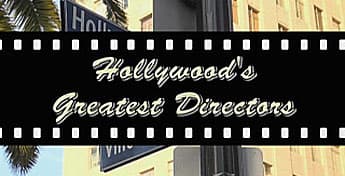The Modern Era
UEN-TV 9.1
Upcoming Show Times:
1:00 PM on Jun 10, 2024
Past Show Times:
1:30 PM on Mar 4, 2024
Program five shows how in the 21st Century a new wave of American directors became known as the authors of their films. Hollywood had gone corporate, investing its money in action blockbusters and distributing what are called Indies, independent features that were bringing home the Oscars for best picture. In this program we focus on the most creative of these independent directors. Chapters: The New Wave. 1986 - Oliver Stone Wins His First Oscar for Directing. 1989 - Spike Lee, Black Auteur. 1992 - Clint Eastwood Receives His First Oscar for Best Director. 2007 - P.T. Anderson Writes and Directs There Will Be Blood. 2008 - Darren Aronofsky, The Wrestler. 2010 - Kathryn Bigelow Wins the Oscar for Best Director.
The Silent Era
UEN-TV 9.1
Upcoming Show Times:
1:00 PM on May 13, 2024
The art of making motion pictures arose in the Silent Era from 1895 - 1927. Program one examines the Silent Era's most outstanding directors who created Hollywood and laid the foundation for the great American cinematic tradition. Chapters: The Invention of Film and Hollywood - 1910 - D.W. Griffith Establishes Hollywood. 1912 - Mack Sennett Founds Keystone Studios. 1913 - Lois Weber, Pioneering Female Director. 1924 - Buster Keaton, an American Original. 1925 - Charlie Chaplin, the First Auteur.
The Coming of Sound
UEN-TV 9.1
Upcoming Show Times:
1:00 PM on May 20, 2024
When Warner Brothers Studios released The Jazz Singer, the first 'talkie', in 1927, it spelled the end of the Silent Era. Program two shows how sound revamped Hollywood, how filmmaking evolved into the 'studio system' and how the first wave of creative directors including Howard Hawks, George Cukor and Dorothy Arzner began shaping the art of cinema. Chapters: The Growth of the Studio System. 1932 - Howard Hawks Directs Scarface. 1939 - Oscar Micheaux, First Black Feature Film Director. 1940 - George Cukor Directs The Philadelphia Story. 1940 - Dorothy Arzner, Hollywood's Greatest Female Director. 1941 - Orson Welles, Citizen Kane.
The Golden Age of Hollywood
UEN-TV 9.1
Upcoming Show Times:
1:00 PM on May 27, 2024
Program three discusses the Golden Age of American Cinema and how internationally acclaimed directors such as John Huston, John Ford and Frank Capra gave the world unparalleled films for over twenty years. It was also the time of American cinema's transition from pure entertainment to social critique. Chapters: America Dominates World Cinema. 1941 - John Huston Brings Film Noir to Hollywood. 1944 - Vincente Minnelli Directs Meet Me in St. Louis. 1946 - Frank Capra, It's a Wonderful Life. 1956 - John Ford, Master of the Western.
The New Hollywood
UEN-TV 9.1
Upcoming Show Times:
1:00 PM on Jun 3, 2024
In the 1950s with the arrival of television, the Studio System began a decade long decline that brought Hollywood to its knees. In program four, we'll see how a new generation of great directors revitalized Hollywood and American Cinema, producing some of the greatest movies of all time. Educated in film schools, these directors understood the history and position of cinema as a social force. Chapters: Hollywood's Second Golden Age. 1967 - Mike Nichols, The Graduate. 1969 - Sam Peckinpah Redefines the Western. 1973 - Terrence Malick, Existential Philosopher. 1974 - Mel Brooks, King of Comedy. 1976 - Martin Scorsese Directs Taxi Driver. 1976 - Sidney Lumet Gives Expression to America's Angst.



 UTAH EDUCATION NETWORK
UTAH EDUCATION NETWORK

 Justin
Justin Braxton
Braxton Dani
Dani Kayla
Kayla Katie
Katie Matthew
Matthew Rob
Rob Val
Val
